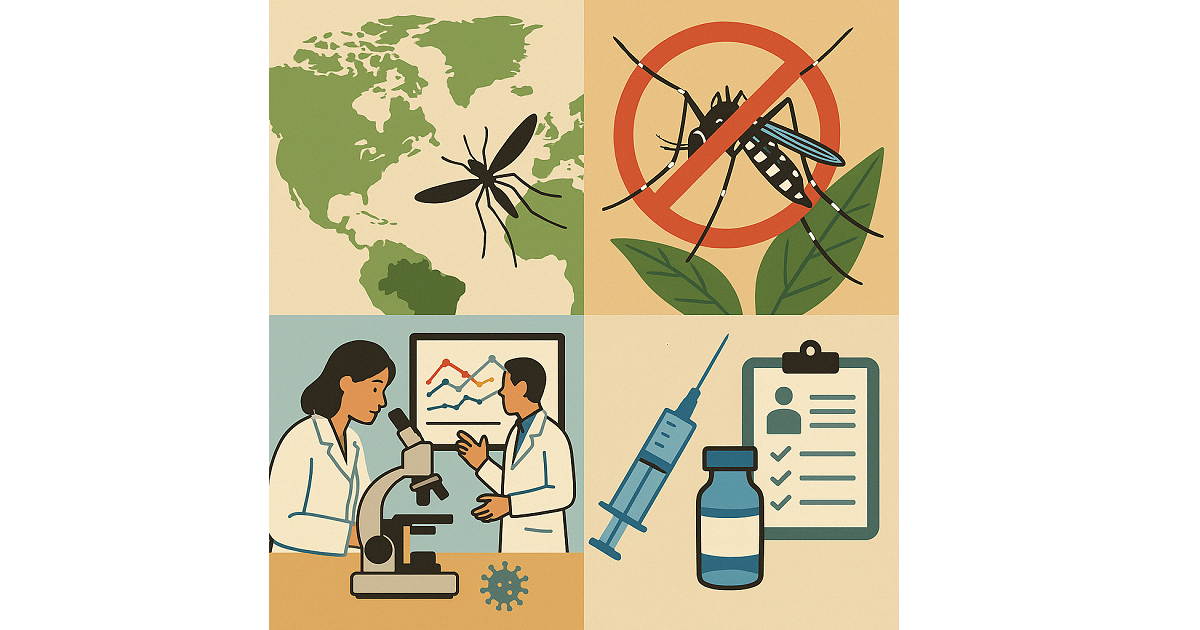- 3.3Impact Factor
- 6.8CiteScore
- 14 daysTime to First Decision
Emerging Arboviruses: Epidemiology, Control, and Future Directions
Special Issue Information
Dear Colleagues,
Emerging arboviruses pose a growing threat to global public health, as their geographic range and incidence are expanding rapidly due to climate change, urbanization, and increased human mobility. In recent years, viruses such as Zika, chikungunya, dengue, Oropouche, and yellow fever have re-emerged or spread into new regions, highlighting the urgent need for improved surveillance, prevention, and response strategies. This Special Issue, “Emerging Arboviruses: Epidemiology, Control and Future Directions”, brings together cutting-edge research and expert perspectives on the evolving epidemiology of arboviral diseases, innovative control measures, and predictive tools for outbreak preparedness. By addressing the multidisciplinary challenges involved in arbovirus emergence—from vector ecology to vaccine development—this collection aims to inform policy, guide public health action, and identify critical gaps in our understanding of these complex pathogens.
Prof. Dr. Alfonso J. Rodriguez-Morales
Guest Editor
Manuscript Submission Information
Manuscripts should be submitted online at www.mdpi.com by registering and logging in to this website. Once you are registered, click here to go to the submission form. Manuscripts can be submitted until the deadline. All submissions that pass pre-check are peer-reviewed. Accepted papers will be published continuously in the journal (as soon as accepted) and will be listed together on the special issue website. Research articles, review articles as well as short communications are invited. For planned papers, a title and short abstract (about 100 words) can be sent to the Editorial Office for announcement on this website.
Submitted manuscripts should not have been published previously, nor be under consideration for publication elsewhere (except conference proceedings papers). All manuscripts are thoroughly refereed through a single-blind peer-review process. A guide for authors and other relevant information for submission of manuscripts is available on the Instructions for Authors page. Pathogens is an international peer-reviewed open access monthly journal published by MDPI.
Please visit the Instructions for Authors page before submitting a manuscript. The Article Processing Charge (APC) for publication in this open access journal is 2200 CHF (Swiss Francs). Submitted papers should be well formatted and use good English. Authors may use MDPI's English editing service prior to publication or during author revisions.
Keywords
- dengue
- chikungunya
- Zika
- Oropouche
- yellow fever

Benefits of Publishing in a Special Issue
- Ease of navigation: Grouping papers by topic helps scholars navigate broad scope journals more efficiently.
- Greater discoverability: Special Issues support the reach and impact of scientific research. Articles in Special Issues are more discoverable and cited more frequently.
- Expansion of research network: Special Issues facilitate connections among authors, fostering scientific collaborations.
- External promotion: Articles in Special Issues are often promoted through the journal's social media, increasing their visibility.
- e-Book format: Special Issues with more than 10 articles can be published as dedicated e-books, ensuring wide and rapid dissemination.

